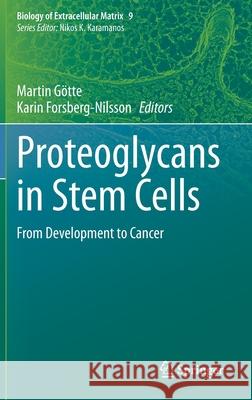Proteoglycans in Stem Cells: From Development to Cancer » książka
topmenu
Proteoglycans in Stem Cells: From Development to Cancer
ISBN-13: 9783030734527 / Angielski / Twarda / 2021 / 308 str.
Kategorie:
Kategorie BISAC:
Wydawca:
Springer
Seria wydawnicza:
Język:
Angielski
ISBN-13:
9783030734527
Rok wydania:
2021
Wydanie:
2021
Numer serii:
000002613
Ilość stron:
308
Waga:
0.62 kg
Wymiary:
23.39 x 15.6 x 1.91
Oprawa:
Twarda
Wolumenów:
01
Dodatkowe informacje:
Wydanie ilustrowane











